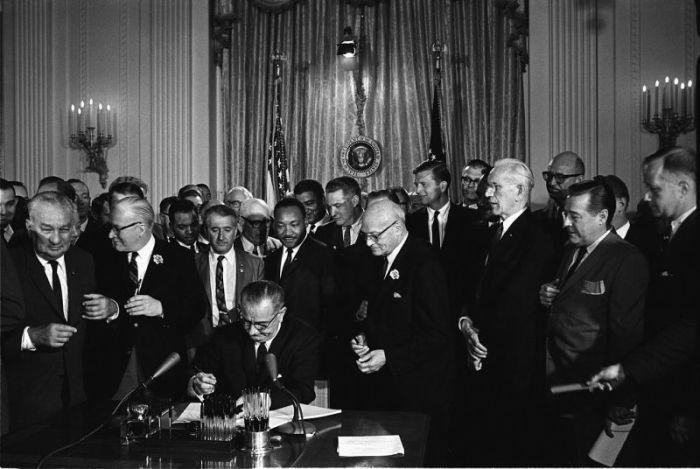A Message of Justice and Hope From Martin Luther King

If this were a typical Monday morning, I would have begun this Daily Article by commenting on the false ballistic missile warning in Hawaii over the weekend. I would probably have linked the story to the earthquake in Peru and the airplane that skidded off a runwayin Turkey and plunged down a steep slope, nearly landing in the Black Sea.I might even have found a way to comment on yesterday's amazing playoff win by Jacksonville, followed by Minnesota's astounding last-second victory.
But this is not a typical Monday. Today we mark the birthday of Martin Luther King, Jr. on January 15, 1929. His extraordinary importance to America and the world calls us to set aside all other news as we remember his historic life and legacy.
"God shows no partiality"
Winner of the Nobel Peace Prize in 1964, Dr. King was a writer, speaker, and leader of singular gifts and transformative significance. As an ordained Baptist minister, he knew well that God's word consistently condemns racism in all its forms:
• "There is neither Jew nor Greek, there is neither slave nor free, there is no male and female, for you are all one in Christ Jesus" (Galatians 3:28).
• God "made from one man every nation of mankind to live on all the face of the earth" (Acts 17:26).
• "God shows no partiality" (Acts 10:34).
• "If you show partiality, you are committing sin and are convicted by the law as transgressors" (James 2:9).
Nonetheless, as an African American, he faced racism in all its ugly forms and consistently called God's people to embrace God's love for all of God's children.
The example that stands above all others is Dr. King's "Letter from Birmingham Jail." He wrote this letter after he was arrested in April 1963 for participating in nonviolent protests. While in Birmingham's city jail, he learned of a statement made by eight white Alabama clergymen criticizing him and his methods.
Dr. King's response is a masterpiece of American literature. It is as relevant and prophetic today as when he wrote it nearly fifty-five years ago.
Befitting his brilliant intellect and remarkable scholarship, he quoted Reinhold Niebuhr, St. Augustine, St. Thomas Aquinas, Martin Buber, Paul Tillich, and T. S. Eliot. I urge you to take time on this special day to read his letter in full.
"Injustice anywhere is a threat to justice everywhere"
For our purposes today, rather than speak for Dr. King, I would like him to speak for himself. As I read his "Letter," I listed some of his statements that most impressed me:
"Injustice anywhere is a threat to justice everywhere. We are caught in an inescapable network of mutuality, tied in a single garment of destiny. Whatever affects one directly, affects all indirectly."
"We have not made a single gain in civil rights without determined legal and nonviolent pressure. Lamentably, it is an historical fact that privileged groups seldom give up their privileges voluntarily. Individuals may see the moral light and voluntarily give up their unjust posture; but, as Reinhold Niebuhr has reminded us, groups tend to be more immoral than individuals."
"We know through painful experience that freedom is never voluntarily given by the oppressor; it must be demanded by the oppressed."
"We will have to repent in this generation not merely for the hateful words and actions of the bad people but for the appalling silence of the good people. Human progress never rolls in on wheels of inevitability; it comes through the tireless efforts of men willing to be co workers with God."
"Right defeated is stronger than evil triumphant."
"We will win our freedom because the sacred heritage of our nation and the eternal will of God are embodied in our echoing demands."
Those who engaged in nonviolent protests "were in reality standing up for what is best in the American dream and for the most sacred values in our Judaeo Christian heritage, thereby bringing our nation back to those great wells of democracy which were dug deep by the founding fathers in their formulation of the Constitution and the Declaration of Independence."
Dr. King closed his letter: "Let us all hope that the dark clouds of racial prejudice will soon pass away and the deep fog of misunderstanding will be lifted from our fear drenched communities, and in some not too distant tomorrow the radiant stars of love and brotherhood will shine over our great nation with all their scintillating beauty."
How will you join God in lifting "the dark clouds of racial prejudice" today?
First published at the Denison Forum.




























